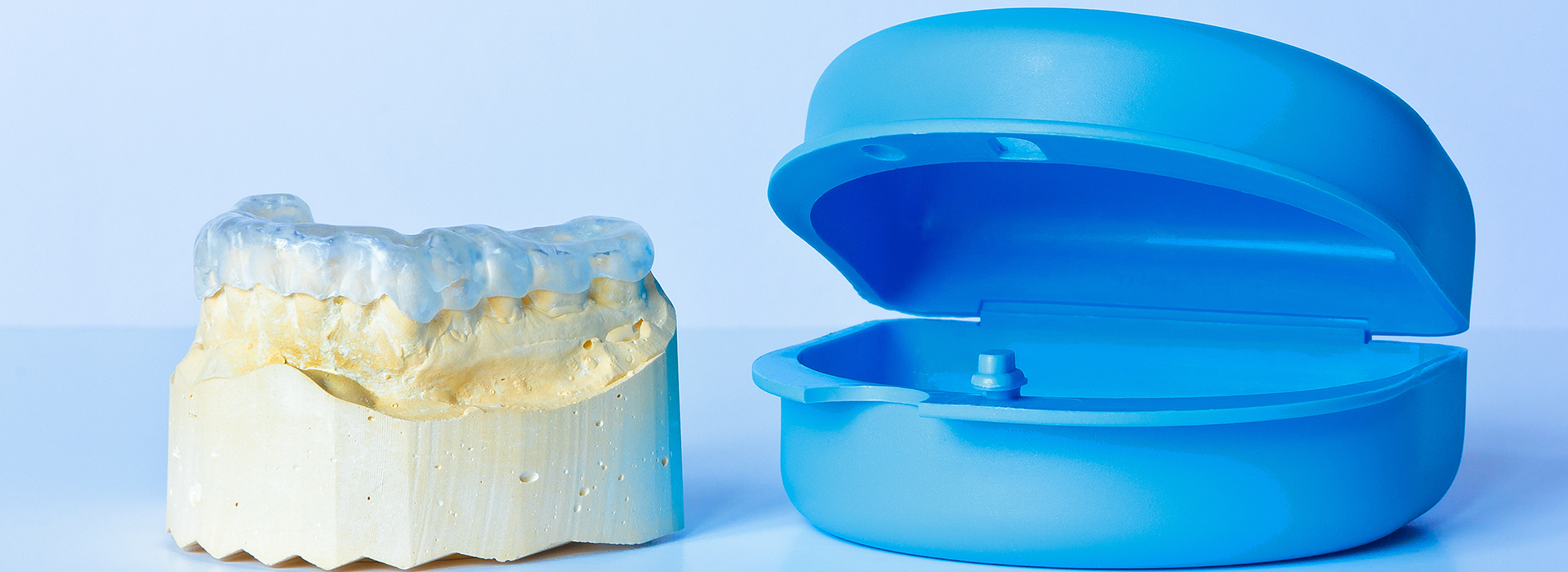Understanding Bruxism: More Than Just Teeth Grinding
Bruxism is the medical term for repetitive jaw clenching and teeth grinding. While some people grind their teeth during the day, many experience the most damaging episodes at night when they’re asleep and unaware. Over time, this unconscious behavior can produce a range of symptoms beyond noisy grinding — including dull or sharp jaw pain, morning headaches, tooth sensitivity, and a feeling that teeth are loose or sore.
It’s important to recognize that bruxism is often a symptom rather than a standalone condition. Stress and anxiety are common triggers, but sleep disorders, an abnormal bite, missing teeth, or misaligned teeth can also contribute. Left unaddressed, bruxism can accelerate tooth wear, increase the risk of chips and fractures, and place extra strain on the temporomandibular joint (TMJ), which can lead to persistent or worsening discomfort.
Because the causes and consequences vary from person to person, a careful evaluation is essential. Identifying whether grinding is primarily a stress-related habit, a mechanical issue with the bite, or linked to an underlying sleep problem guides treatment choices and helps protect long-term oral health.
How Night Guards Work: A Simple Shield for Your Smile
A night guard is a protective oral appliance worn over the teeth while sleeping. Its primary function is to create a barrier between the upper and lower teeth so they no longer make direct contact during grinding episodes. By separating the teeth, the appliance reduces the intensity of force transmitted to the enamel and the jaw, which helps prevent fractures, chips, and accelerated wear.
Beyond preventing physical damage, a well-designed night guard redistributes biting forces and can reduce excessive muscle contraction. This means many patients experience fewer morning headaches and less jaw tension. While a night guard doesn’t necessarily stop the grinding habit itself, it protects the smile and gives surrounding tissues time to recover.
When fitted properly, a night guard also encourages a slightly more relaxed jaw position. For patients with TMJ discomfort, this small change can ease pressure on the joint and surrounding muscles, enhancing comfort through the night and often improving daytime symptoms.
Types of Night Guards: Choosing the Right Fit
Night guards fall into a few categories, and the best option depends on the severity of bruxism, bite characteristics, and personal comfort. Over-the-counter “boil-and-bite” guards are molded at home and can offer short-term protection, but they often lack the precision and durability of professionally made appliances. For mild, occasional grinders they can be a temporary step, but they may not provide ideal long-term protection.
Custom night guards made at the dental office are fabricated from impressions or digital scans of your teeth. These appliances are tailored to your bite and are available in different materials and thicknesses. Harder, more rigid materials are typically recommended for severe grinders because they resist wear and deliver consistent protection. Softer materials can feel more comfortable for light grinders or patients who prefer a cushion-like feel.
The choice of material and design also affects speech, comfort, and ease of cleaning. A skilled dental team will recommend the type that best balances protection with day-to-day wearability, helping patients stick with treatment and benefit from consistent use.
It’s worth noting that a correctly fitted custom guard rarely interferes with breathing or sleep, and most patients adapt quickly. The added fit precision also reduces the need for frequent adjustments, which helps the appliance remain effective over time.
The Custom Night Guard Process: What to Expect at the Office
Getting a custom night guard begins with a comprehensive exam that assesses tooth wear, bite alignment, and any signs of TMJ strain. Your dentist will discuss symptoms, sleep habits, and possible contributing factors so the appliance can be designed to address your specific needs. If there are indications of a sleep disorder or other medical concern, a referral for further evaluation may be recommended.
If a custom guard is appropriate, the next step is capturing an accurate record of your bite. Many offices now use digital intraoral scanners to create a precise 3D model of your teeth; traditional impressions with dental putty are still a reliable option. The model is sent to a dental lab where technicians fabricate the appliance to the required thickness, shape, and material.
Once the guard is ready, you’ll return to the office for a fitting. The dental team checks the fit, adjusts contact points as needed, and verifies that the appliance allows for a comfortable jaw position without disturbing the bite. A few minor adjustments during the first few weeks of wear are common as the device settles into place.
The goal of the in-office process is to create a night guard that patients are comfortable wearing regularly. Proper fit not only improves protection but also increases the likelihood of consistent use, which is key to preventing further dental damage.
Care, Limitations, and When to Seek Further Help
Proper care prolongs the life of a night guard and helps maintain oral hygiene. Rinse the appliance after each use and brush it gently with a soft toothbrush and non-abrasive soap or toothpaste. Store the guard in a ventilated case away from heat or direct sunlight. Regular dental checkups include an inspection of the guard so any wear or fit issues can be addressed before they affect your protection.
While night guards are highly effective at preventing tooth-to-tooth damage, they are not a cure for every underlying cause of bruxism. For patients whose grinding is driven by stress, behavioral strategies like relaxation techniques, improved sleep hygiene, or targeted therapy can be useful complements. If sleep apnea or another sleep disorder is suspected, a sleep study and coordinated care with a sleep specialist may be necessary.
Night guards also have limits: they will not reposition teeth or permanently correct bite problems. If alignment issues are a primary driver of grinding, orthodontic or restorative treatments may be part of a broader care plan. Regular monitoring ensures the chosen approach continues to match the patient’s needs.
If you notice that symptoms are worsening, if the appliance no longer fits properly, or if new pain develops in the jaw or face, contact your dental team. Early intervention helps prevent more serious dental and joint complications and ensures any necessary adjustments to your treatment plan are made promptly.
At Cruzin' Dental, our approach combines careful diagnosis with personalized appliance design so patients receive the right level of protection and comfort. A properly fitted night guard can safeguard your teeth, reduce muscle strain, and support better sleep. If you have concerns about grinding, jaw pain, or worn teeth, please contact us for more information and to discuss whether a night guard is a suitable option for you.




